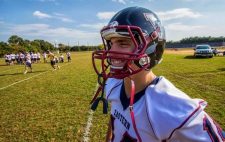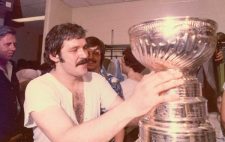Every month since the first issue, we’ve asked one person ten questions. Maybe we asked about their success. Maybe, their insight on a particular topic. We quizzed athletes, politicians, entrepreneurs, and some really interesting SJ folks. Here, we present the ten best answers in our long list of questions.
 Coming Home
Coming Home
with Marine Corporal Chris Cunningham, after returning home to Cherry Hill from Iraq in July 2008:
Was the experience what you expected?
It was nothing like what I expected. You really can’t assume or expect anything when it comes to being in a combat zone. It’s a different feeling and one that nobody is used to. You have to always look over your shoulder. You’re in danger 24 hours a day, seven days a week. Even when you sleep, you always have one eye open.
An Inside Look
with then-State Senator John Adler in 2005:
What types of requests do you get from your constituents?
It’s amazing the variety of requests my office will get. We get very sophisticated problems involving insurance issues or tax issues. Then we get very simple questions like: where should I go to buy a nice car? I once had a woman call me because a turtle was in her swimming pool and she wanted the DEP to come and get the turtle out of her pool. So you know what I did? I went over to her house myself, in the rain, and used her pool skimmer to scoop the turtle out of her pool and put it in the woods behind her house. True story.
 Big Daddy’s Cooking
Big Daddy’s Cooking
with Camden’s Aaron McCargo Jr., winner of the reality show The Next Food Network Star in December 2008:
When did you develop a passion for cooking, and who inspired you?
My dad. He recognized that I was interested in cooking. I started at the age of 4, when I was intrigued with the flavors in my mouth and waiting for my chance to cook. At 7, I made my first meal for my family. I took some frozen cod and put on some pepper and sliced lemons, and I made some white rice and string beans. I made that meal in the microwave because I wasn’t allowed to use the stove. I presented it to my parents, and now that I’m grown, I know the rice was hard, but they ate it out of love anyway! After making that first meal, my dad said he knew I wanted to be a chef, that it was my gift. I just ran with that thought.
What’s Important
with SJ Magazine’s Maury Z. Levy in August, 2005, after life-changing spinal surgery:
What have you learned from your illness?
One, I learned you can get hit by lightening. Two, this has affected my view of just about everything else in life – what is important and not important, what is worth getting upset about, and what is stuff you shouldn’t worry over. When the doctors tell you, going into an operation, you may not live through it, or you may come out paralyzed, it really tends to change the way you look at day-to-day life.
So what is important?
The people who care about me – my family, friends – and doing things I really want to do. For awhile now, I’ve kept a list of things I’d like to do. There’s probably about ten items, ranging from going back to Paris to re-learning how to play the guitar. I always wanted to do them before I was too old or too feeble. Now I look at those and think, “Maybe I should do them now, because you never know when the bus is going to hit you.”
Life’s Journey
with Moorestown’s Evan Heitzman, mom of Tommy, then 8, and Christopher, then 6, in 2005. Christopher has autism:
What is Christopher’s relationship with his older brother?
Siblings of disabled children, in some ways, have to mature quickly. They are forced to be independent quickly. Tommy is an amazing brother to Christopher. He is loving and accepting of his brother’s limitations and the limitations that are sometimes imposed on us as a family.
One time, I was standing at the kitchen window watching Tommy and Christopher, who were outside. Tommy was playing basketball and Christopher was watching. Christopher started to wander off in a direction he is not allowed to go. Tommy put the ball down, ran over and grabbed Christopher, brought him back and started playing basketball again. He’s developed those eyes in the back of his head, whether he realizes it or not. No matter what he’s doing, he’s got that eye on his brother. That was a touching moment for me to see.
 So, How’s the Weather?
So, How’s the Weather?
with Rutgers climatologist Keith Arnesen in 2006:
Why are forecasters wrong so often?
Short-term forecasts, meaning 24 hours or less, are 90-percent accurate. As you go out further in time, then the 90-percent level drops off. The trouble is, you’re dealing with human beings. You might have the right forecast, but somebody gets unhappy because it rains on their parade. They had a picnic planned that day and maybe you even correctly forecasted that it’s going to rain, but they didn’t like that. Somehow that gets filtered as being a lousy forecast or wrong forecast.
Know the Answer?
with Cherry Hill’s Peter Driscoll in March 2007. Peter had just appeared (and lost) on Jeopardy!:
What was the biggest difference between the real thing and playing from your couch?
Of course, I don’t wear make-up when I watch the game at home! The biggest difference was seeing the way a television show is produced from behind the scenes. It looks nothing like it does on TV. You see everything as very smooth, as a seamless production. You don’t realize what goes on when the cameras aren’t rolling. There’s a lot of preparation, from the set to make-up to wardrobe, to making sure the studio is well lit and the right temperature. For example, when you watch it on TV, you never hear anybody stutter or misspeak. But there are actually instances where play stops at certain times and the judges will reevaluate if you got an answer right. It happened to me. They decided one of the answers they had given me credit for was wrong. It seemed like more of a mispronunciation, but they went back and reviewed the answer and determined they didn’t like my answer. But it’s all done in a way that looks very smooth.
Whatever It Takes
with 75-year-old Dominic Pontarelli in June 2009. Dominic has cared for his wife Theresa since she was diagnosed with Alzheimer’s disease 14 years ago:
What are your days like now?
Theresa can’t walk, talk or feed herself. She is awake, but not aware, and she is completely dependent on others. A caregiver from Samaritan Hospice comes in the morning to get Theresa ready for the day. She brings her into the kitchen in a wheelchair and I feed her breakfast. Then another caregiver comes to stay with her for a few hours. That’s when I go grocery shopping or to the gym. I go to the gym because I have high blood pressure, and I want to stay healthy so I can take care of Theresa. I also need to build my strength so I can transfer Theresa from her bed to her wheelchair.
When you think of the future, what do you hope for?
I hope she doesn’t outlive me. I want to be here to take care of her as long as she needs me. I am giving her the best care she can get. Her vital signs are good, she has only deteriorated mentally. She could live a long time. I love my wife. Whatever time she has left, I want to make sure she is comfortable – and with me.


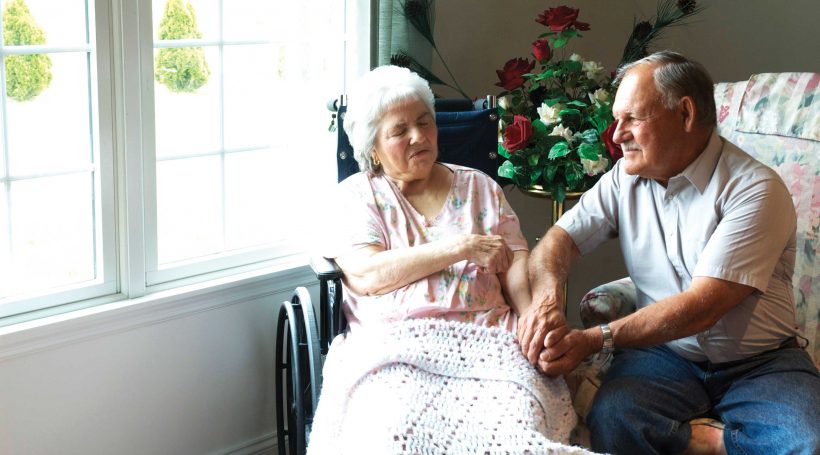
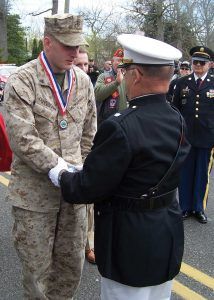 Coming Home
Coming Home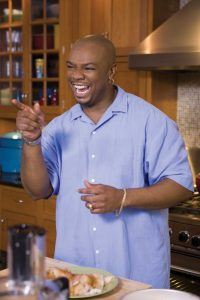 Big Daddy’s Cooking
Big Daddy’s Cooking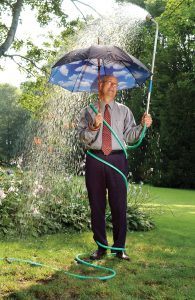 So, How’s the Weather?
So, How’s the Weather?
